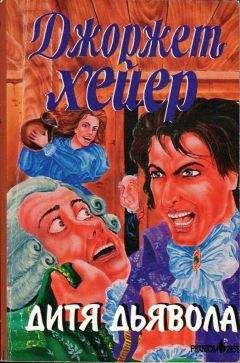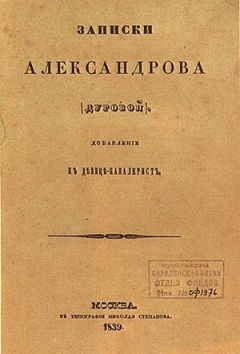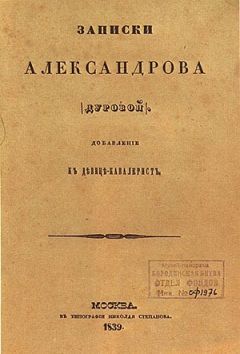Peter Carey - Oscar and Lucinda
His muscles were kept tense and tight all day, and yet no one threatened, and there was not a word to say on the subject of biffing. There were, in fact, very few words said on any subject at all, and although Mr Jeffris did not declare a policy to him, it was obvious after the first hour that he did not wish one clerk to talk to another and Oscar had the feeling, on entering the office, that it was not unlike an omnibus in which people travel every day and the passengers, having become familiar with each other, may exchange a nod (or perhaps not) but will not really acknowledge their community until there is a tragedy or a humorous mishap. When this arrives they will express their solidarity through laughter. Oscar provided an opportunity almost immediately.
Mr d'Abbs had rung the bell, not gaily at all, but sharply, nervously. He had introduced Mr Jeffris who did not, on first impression, seem in the least prehistoric. As for being proof of the ape in man, Oscar could not see it. Mr Jeffris was a young man, no older than Oscar, with the moustache and bearing of a Guards officer although, being just a fraction shorter than Mr d'Abbs, he was too small to have met the
9CU
Mr Smudge
physical requirements. He had jet-black hair and apart from the moustache-a thicker, deeper one than Mr d'Abbs-was cleanshaven. He had a dimpled chin and a blue cast to his very white skin. Mr Jeffris did not smile, but he did not scowl. He hardly moved his face at all, and yet he communicated the most colossal and even dangerous passion. It was all in there, expressed in the gap between the angry intensity in the eyes and the very still, leashed-in quality of the muscled body.
Mr Jeffris was very civil to Mr Hopkins. He led him into the clerks' room. This was a long office with a big stove in the middle. The black chimney traced an unexpectedly long route on its way to the wall, a long dog-leg, and you could see by the way the desks were arranged along its route, that it gave off a much-desired heat in winter and that, in its journey from hot to cold, it also indicated the rank of the clerk, Mr Jeffris being close to the stove and the youngest clerks well away. Oscar noticed the eccentricity of the flue, but did not understand it. He was more surprised by the expensive mauve and brown wallpaper (on the one hand) and the bare paint-speckled floor (on the other). It did not quite fit, and although no one bothered to tell him, it was because the previous tenants, very successful lawyers, had taken their carpet with them. The thing that made the greatest impression; on Oscar was the depth of the room which only had five windows, all of them at the Sussex Street end, and so he was surprised to be led towards the light and to be given a desk next to the window from: where he had a view, not only of the interesting iron-wheeled, cobblestoned goings-on in Sussex Street itself, but the muddled little jig; saw pieces of Darling Harbour which were visible at the end of two alleyways across the way. He could see the smokestack of Prince Rupert's Glassworks, too.
When he was shown this desk Oscar feared that he was being unduly favoured. He did not wish to make enemies so easily.
"But this, surely," he said to Mr Jeffris, "is far too fine a desk for me?" He said this in a whisper, for the room was very quiet, but just the same it produced a nasty roar of laughter. There was scraping of chairs, coughing, snorts, wheezes, a barnyard. Oscar's cheeks went flat like potters'
clay slapped hard with a paddle. He looked at Mr Jeffris who was biting his moustache. Then he looked at the other clerks who had already stopped. No one looked his way. He thought: I will not put up with this rudeness.:
Then he thought: I must. The fine spider-web capillaries in his cheeks were awash with blood. 295
Oscar and Lucinda
He sat at his desk, finding something in its sticky wax surface that was repellent to his fingers. He clasped his hands in his lap. The urge to stand up and walk away was still very strong. It came on him in waves like stomach-ache. Mr Jeff ris gave him three musty-smelling journals with moth-eaten leather spines. These were the debtors journals for John Hill & Co., John Bell (Homoeopathic Chemists) and Senior's, also chemists but making no claim to homoeopathy. Oscar was not a snob about commerce, but it was completely alien to him. When he saw the books he felt that he would never understand them. Mr Jeffris gave him the business's receipt books and asked that these receipts be transcribed into the journals. And although you might not think this so foreign an activity for a young man with a passion for racehorse journals, he did not see the similarity. He felt only despair that life could be passed in so low and slow and meaningless a manner. Mr Jeffris gave him a pen with a new nib, a pot of ink, and a sheet of pink blottingpaper which seemed, perhaps due to its colour, but then again perhaps not, to produce a fit of coughing and scraping amongst his fellow workers.
And that was how Oscar was employed. He tried to feel grateful. He sat on a hard wooden chair with no cushion, at a table with a wobbly leg which sometimes contributed to his smudges and blots. He found the work trying and the hours too long. Nothing in Hennacombe, in Oxford, in Netting Hill, at Randwick, had been so stultifying. As a clergyman he had enjoyed his mornings at the desk. He had drunk a little jasmine tea while he thought about the most demanding duty of his week-his sermon. Nothing had prepared him for the flavour of something so dull and mean. He wrote down the names of items he could not imagine and, in columns next to them, prices he could not afford to pay.
He transcribed Shower Baths.
Slipper Baths.
Hip Baths.
Foot Baths.!>
He entered Bagatelle Boards.»
Chiffoniers. -
Superfine.,
Millefleurs Powder.
And he sweated in the harsh afternoon sunshine which blazed across his desk and every day became hotter and hotter. He did not ask for a curtain. He knew what rude laughter would accompany the request. He would end his days with no feeling of release, but with a dull
1Q£.
Mr Smudge
headache and his shirt sticking unpleasantly to his skin. His dreams shrank until they could accommodate no larger idea than a curtain, or a crisply folded poplin shirt. He only had two shirts. The white one he wore for two days, the blue one he wore for three. And although he bathed three times a week and changed his collar daily, his shirts smelt like the old rags Mrs Williams kept in a bucket in the scullery in Hennacombe. The smell was remarked on by his fellow workers without anything ever being said. It happened, somehow, in the silence, although
"silence" is perhaps the wrong term. It was more that there was a pressure of silence, a lid of silence beneath which there were odd and secret stirrings of sound.
The Reverend Oscar Hopkins sat in his own stink above a dungfowled Sydney street suffering alternate waves of anger and depression which could be triggered by a blow-fly trapped behind sun-bright glass or the bells of St John's at Pyrmont, or St Andrew's in the city. He had told the Ecclesiastical Commission that his gambling had not been covetous, but he had not acquitted himself well. He had been nervous, overpowered by their confidence and authority. He had felt himself to be as venal as they imagined him to be. His voice had shaken as he stood before them, bishops in purple drinking tea from floral cups. He had said that he had never gambled for personal gain, and they simply did not believe him. And so he was cast out, spat upon, become anathema.
Mr Jeffris called him Mr Smudge. This was thought to be a great joke. He was appointed as clerk responsible for mixing ink, a messy job which ruined his shirt cuffs and had him going home each Monday night with ink soaked so deeply into his skin it took a pumice stone to remove it, or remove most of it, for even after a long and painful rubbing, a shadow still remained, a blue cast lay on his skin and he named it, joking to Lucinda, as his Monday Shadow. Elizabeth Leplastrier's daughter was not tolerant of his messy style his blue ink, the unpleasant smell of the shirts. And yet she thought it her Christian duty to assist him and so she laboured with him (not altogether graciously) on Saturday morning, stirring his clothes in the copper. Her face was wet with steam. Her eyes stung with smoke. He dripped boiling water all around him, splashing her, splashing himself, ooh-ing and ouch-ing as he thwacked the blue shirt and the white shirt down into the trough.
He was not manually dextrous, that much was obvious. He went at things in too much of a rush to do them neatly. He was ungainly, made bony angles, would hurt himself badly
Oscar and Lucinda
should he have ever needed to work in a glassworks.
Lucinda was interested in the way men made things, how they organized themselves. She sat her guest down in her kitchen and questioned him about the way in which the ink was manufactured. He surprised her with the fastidious nature of his answer-it did not fit in with all the shirt thwacking and dripping water.
To make the ink he must first take a brown paper bag of ink powder, a little metal cup, and a large bottle. He must carry these utensils to the alleyway which ran through the heart of the building. In the alleyway was a tap. There were other taps in the building, of course, but it was forbidden-there were signs above the taps expressly forbidding it-to make ink at these basins. No, he must go into the laneway which served as a thoroughfare, not only for snot-nosed message boys cutting through from Kent to Sussex Street, but also for the wagons and drays from the wheelwright who occupied the tangled courtyard in the centre of the building. Wind blew along this alley way even in the most clement weather and the tap was one of those widemouthed types with a lot of air in its gurgle, "all wind and no water" as a passing rag-andbone man observed to him. Here, crouching against the urine-sour brick wall, Theophilus Hopkins's son, now twenty-one years old, an age at which his father had already published two distinguished monographs, must measure out the ink powder from its paper bag with a flat steel spatula and transfer it, guessing the quantity, into a metal cup. This was not only menial, it was not easy. Ink powder blew in the wind. Specks of stinging pigment lodged in his already baleful bloodshot eyes. He must mix the powder into paste in the cup. The tap gurgled, spluttered, splashed. The spatula handle became wet, then blue. The blue was now on his hands, his face, and still he must dilute the sludge so it would pour, and then transfer it to the ink bottle and then, if there was time, and they had not sent young Summers down to tell him to hurry up, that the ink was needed as quickly as you like now, Mr Smudge, he would wash.
He made Lucinda laugh, but when the froth had subsided she was left with a black and slightly bitter taste, and this scene did not fit with her idea of Mr d'Abbs, who, no matter what his frailties and vanities, she had always thought of as a kindly man, not one to subject another human being to comic indignity.
She had many things to worry about at that time, things she would, herself, have imagined to be more important to her than her nervous, ink-stained lodger.
But she could not bear that he be called Mr Smudge. It was wrong
Mr Smudge
of him to tolerate it, and worse that he should joke about it. The gurgling tap stayed with her. She saw it clearly: its wide grey mouth, its verdigrised brass cock. It produced a feeling well out of proportion to its weight. It was she who was the author of this situation and she accepted more blame than she thought she should. She took it on herself while judging herself foolish for doing so. And when she had far more weighty matters to occupy herself with, she left her own office (just a little down Sussex, before Druitt) and walked-her back straight, her steps brisk and businesslike-down the alleyway towards the
wheelwright's.
The tap was on the south wall. She had imagined the north. There was a smell-men's urine-which would normally have made her quicken her step, certainly not stand still. There was no brass in the tap at all. It was a dull grey thing, a fat and ugly machine, dull grey, streaked with ink, the source, it seemed, of the drunk-man smell.
She turned it on, then off. Her lower lip was tucked in tight. She splashed her shoes. If Mr d'Abbs used his poets and his astronomers thus, he was not even a shadow of the man he posed as, but a barbarian like the rest of them.
Lucinda was suddenly very angry. She did not like her shoes wet. She would see the room wherein her friend, the "aesthete," the Medici, housed his poets. It was, perchance, a stable, a cupboard, a chookhouse, the bottom of a well.
She went up the cedar-panelled stairs towards the offices and found Mr d'Abbs (he must have passed her whilst she fiddled with the tap) on the stairs ahead of her. He looked at her wet shoes, but said nothing about the cause of it. Indeed, they travelled together all the way to Mr d'Abbs's anteroom without having said so much as a "Good morning." Mr d'Abbs was flustered. Lucinda imagined this related, somehow, to the tap. But he had not seen her at the tap. He was flustered because he did not like the routine of his arrival interfered with. He was not expecting Miss Leplastrier. He did not like what he did not expect. He was, in effect, receiving her. Yet it was not his job to receive. It was Mr Jeffris's entitlement, and this had been settled long ago. Now he was unsure of whether to go into his office and leave Miss Leplastrier in the anteroom or to usher her in irrespective of the rules; but then it seemed she did not wish to see his office, anyway. She would inspect the clerks' room.
Oh no, she would not, not on your nelly.
The anteroom was very small, and although its couch was
Oscar and Lucinda
comfortable enough and it had an ashtray, a brass spittoon and a copy of the London Illustrated News, it was hardly bigger than the carriage in which Mr d'Abbs had been driven to the city. They stood, therefore, very close together, both made uncomfortable by such intimate confinement with a member of the opposite sex.
'There can be no question," he said, making a fuss of placing his unbrella on the stand intended solely for the use of visits, checking his cuffs, and smiling in the direction of his client's shoulder (not in calm sequence either, but as if he were a machine with some part not securely connected and he wished, against the rules of his own manufacture, to do all three things at once). "There can be no question of you disturbing the clerks."
Lucinda nearly invented some excuse. Then she thought, No, I shall not demean myself by lying. She drew her shoulders back and tried to find his eye. She explained she wished to see the conditions under which the clerks laboured.
Mr d'Abbs thought: Ha!
He judged the woman smitten. And whilst this explanation made him smirk (she wished to see lover-boy, that was all) it afforded no relief.
She put her busybody little hand on the door of the clerks' room. This door had a small enamelled sign. It said "Private." There was a small chip out of the "e," but the meaning was clear. Mr d'Abbs stared at the sign as if the sheer intensity of his staring could force Miss Leplastrier to obey it. But she turned the rattly little knob in spite of him. Dash it. He would tell her the truth. He would, in effect, throw himself on her mercy. You could do this with a woman. She would understand his agreement with Mr Jeff ris. It was not an agreement at all. It was never spoken of, but it was understood that this, on the other side of the door, was Mr Jeffris's territory. Not even Mr d'Abbs, the, captain of the ship, entered this room. If he wished ledgers brought into his office, he rang. }



